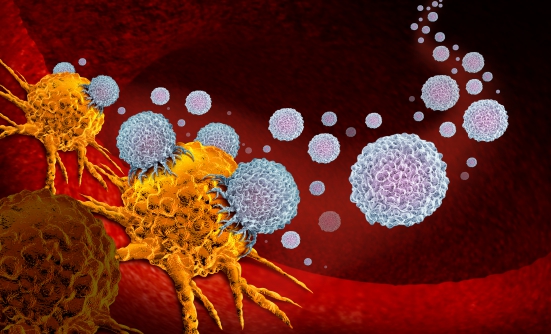New data presented at the 2020 ASCO annual meeting showed that treatment with the relatively recently approved immunotherapy Libtayo (cemiplimab), a PD-1 inhibitor, led to lasting reductions in pain and improved quality of life in patients with advanced cutaneous squamous-cell carcinoma (CSCC) in addition to improved survival without disease progression. The new results from a phase 2 clinical trial were presented by Michael R. Migden, MD, Professor at the Departments of Dermatology and Head and Neck Surgery, M.D. Anderson Cancer Center in Houston, Texas.
The new, long-term analysis of results from the phase 2 study trial also showed that patients had significant reductions of insomnia, appetite loss, and constipation, as well as improvements in emotional and physical functioning with the use of cemiplimab, Dr. Migden said.

“This analysis shows that patients with advanced CSCC achieved early and clinically meaningful reductions in pain with Libtayo that were maintained up to 12 treatment cycles,” he said. “Most patients’ health-related quality of life and functioning either improved or remained stable while maintaining a low symptom burden.”
Non-melanoma skin cancer, or CSCC, is the second most common cancer in the United States. Although pain and itching are common symptoms of this disease, pain is a key symptom for patients with this skin cancer, according to Dr. Migden.
The long-term survival data reported at the ASCO meeting were based on a new analysis of the international, phase 2 clinical trial with this immunotherapy also showed frequent and durable responses in patients with advanced CSCC. The initial analysis of that study led to the subsequent FDA approval of cemiplimab in 2018 for the treatment of patients with advanced or metastatic CSCC.
Better Quality of Life
This analysis of the 3-year follow-up results of the phase 2 clinical trial focused on the long-term effects of cemiplimab on patients’ quality of life, based on patient-reported outcomes using the QLQ-C30 questionnaire, which includes questions related to the patient’s quality of life and symptoms while receiving specific medications.
Of the total of 193 patients enrolled in this analysis, 59 patients had metastatic CSCC and 78 patients had locally advanced disease; all these patients received cemiplimab every 2 weeks for 12 treatment cycles. An additional 56 patients with metastatic CSCC received cemiplimab every 3 weeks for a total treatment of 6 cycles of immunotherapy.
Dr. Migden and his colleagues used the QLQ-C30 questionnaire to evaluate the patients’ reported responses on quality-of-life issues during treatment with cemiplimab.
The scores ranged from 0 to 100, with higher scores indicating better outcomes about overall patient health status, quality of life, and functional domains. Low symptom scores indicated reduced negative symptoms, which show improved outcomes. A change of at least 10 points is considered to have meaningful results for the patient.
The initial (baseline) pain score reported by patients was worse than the pain scores reported by patients with other types of advanced cancer. However, as early as after 2 cycles of immunotherapy with cemiplimab, patients reported marked reductions in pain score. Furthermore, these reductions in pain scores were maintained throughout the study, up to cycle 12 of cemiplimab therapy, indicating continued improvement in pain reduction.
Reduced Symptoms
Significant improvements by cycle 3 of therapy with cemiplimab were also reported for the symptoms of insomnia, appetite loss, constipation, and emotional and physical functioning. These improvements increased or were maintained by cycle 12 of cemiplimab therapy.
“These improvements in symptoms, together with maintained or improved function, likely contributed to the significant 7.8-point improvement in global health status at cycle 3 and the clinically meaningful change of 11.1 points at cycle 12,” said Dr. Migden.
“By cycle 6, the majority of patients experienced clinically meaningful improvements or stability in global health status and functional status, while maintaining low symptom burden,” he added.
Improved or stable pain level was reported by the majority (83%) of patients. In addition, almost all (89%) of the patients reported reduced vomiting, and 90% of patients reported increased appetite.
“These results further support Libtayo as a new standard of care option in the treatment of advanced CSCC,” Dr. Migden concluded.
Key Points
- Pain is a key symptom for the diagnosis of this skin cancer
- In this study, 83% of patients with advanced or metastatic CSCC had early reductions in pain with cemiplimab therapy
- These reductions continued for up to 12 treatment cycles with cemiplimab
- The drug also improved patients’ quality of life, including reductions in insomnia and constipation, and emotional and physical functioning improvements
- Most (89%) patients reported reduced vomiting, and 90% reported increased appetite















